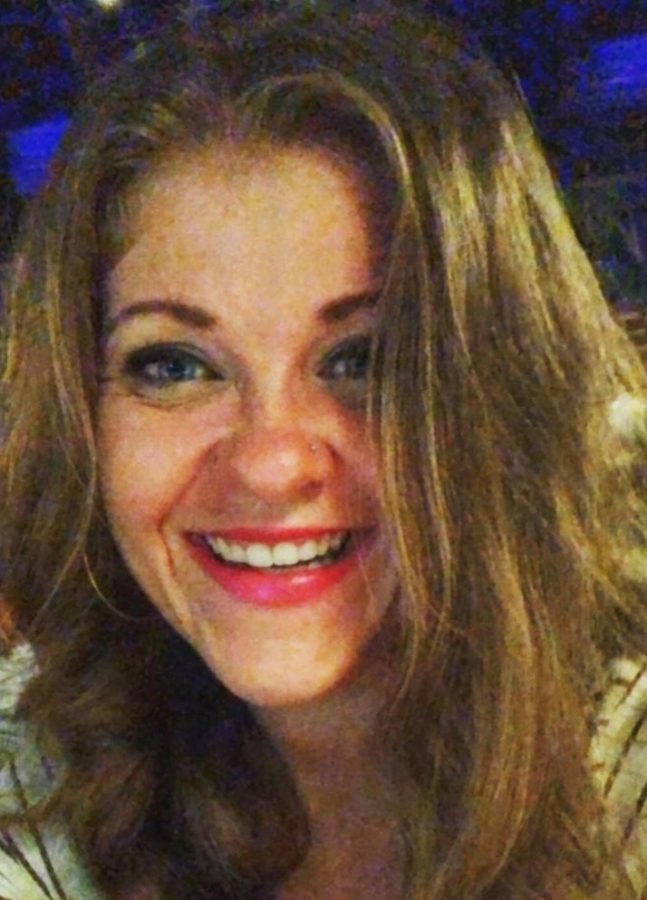Alumni Rikki Logana’s Journey Through Nursing
January 3, 2020
Alumni Rikki Logana graduated from high school in 2005, and at that time, she planned to be a registered nurse (RN). After high school she ended up going to college in Louisville Kentucky, after her first year there she was awarded her LPN (licensed practical nurse). She currently practices medicine as a family nurse practitioner.
Logana states that an LPN is a one year program. Upon graduating from this program, the person still must take boards (a medical exam) for practical nursing. LPNs typically work in long-term care settings doing things like checking blood pressure, helping patients dress or bathe, and report the status of a patient to an RN. They typically work in places such as nursing homes or rehabs.
After graduating with her LPN, Logana then returned to school the following year and received her RN. Logana returned home to Pennsylvania and began working at Hopkins as an RN.
An RN can be a two year associate’s degree or a four year bachelor degree. RNs typically work in hospitals. Thanks to their further education, they can perform assessments on patients. They administer medicine, place intravenous lines (IVs), instruct patients on how to manage illness.
“I like to say that they are the eyes and ears for the providers–doctors, nurse practitioners, physician’s assistants,” Logana explained.
After three years of working there, she decided to become a traveling nurse and travel across the country. “Travel nursing took me all over the country allowing me to see things I didn’t know existed,” said Logana.
She then came home and went to work at Franklin square emergency department, that is when she decided to go back to school and become a family nurse practitioner (FNP).
A FNP requires a six year degree. You must first be an RN, but once you attain your degree, you are considered a medical provider. As an FNP, you assess patients just like an RN, but you work to find a diagnosis.
A FNP can order blood work, perform medical tests, interpret lab reports, and prescribe medication.
As family nurse practitioner she takes care of a lot of people of different ages, “I see all ages newborns to 100+. They come to me well or sick” Logana said.
She works with two other doctors, but her role is the same. “Even though I did not go to med school, I am licensed under the board for nursing and went through additional schooling to learn how to assess, diagnose, terat.”
At work, Logana assesses her patients, listens to their concerns, orders further testing if she needs it to make a diagnosis, and once a diagnosis is made, she makes a plan for the patient.
Additionally, she responds to messages of patients who call the family practice with concerns. She also reviews labs, radiology reports, and documents from other medical providers who have seen her patients.
Managing the time in her day can be quite challenging, as such, she sometimes has to work from home to get it all done.
While doing all of this, twice a week she has a student Nurse Practitioner with her who she allows to see patients independently but then present them to Logana; together, they make a plan and go see the patient to make them aware of it.
Logana’s job on a day to day basis is very busy and requires a lot of her attention, “My job is a LOT of teaching to not only my students but my patients about wellness, preventative care, and explaining disease processes, etc.”
Teaching and caring for others are Logana’s favorite parts of the job. “[The patients] trust me with their health, that is not something that you can just trust anybody with. I really enjoy seeing my patient’s do well and get better after I helped them make changes,” she said.
Logana states that high school helped her prepare for her job by encouraging them to shadow someone in the field they were interested in.
A teacher who impacted Logana as a student was history teacher Scott Vojcsik. “He had expectations of his students and he treated us as adults, those who deserved to be treated as such. He taught me that if you show respect you get respect,” said Logana.
Advice she would give to an aspiring nurse is to really want to be a nurse for the right reasons. “It’s more than a good paying job; while it is that for sure, you are with people during their best and worst.”
As such, the worst can be the worst. “The most difficult part of my job is having to deliver bad news such as cancer diagnosis or terminal illness,” Logana stated.



Cindy Bacon • Oct 14, 2020 at 5:50 pm
I loved reading this! Congratulations on your hard work professionally and on your recent marriage!